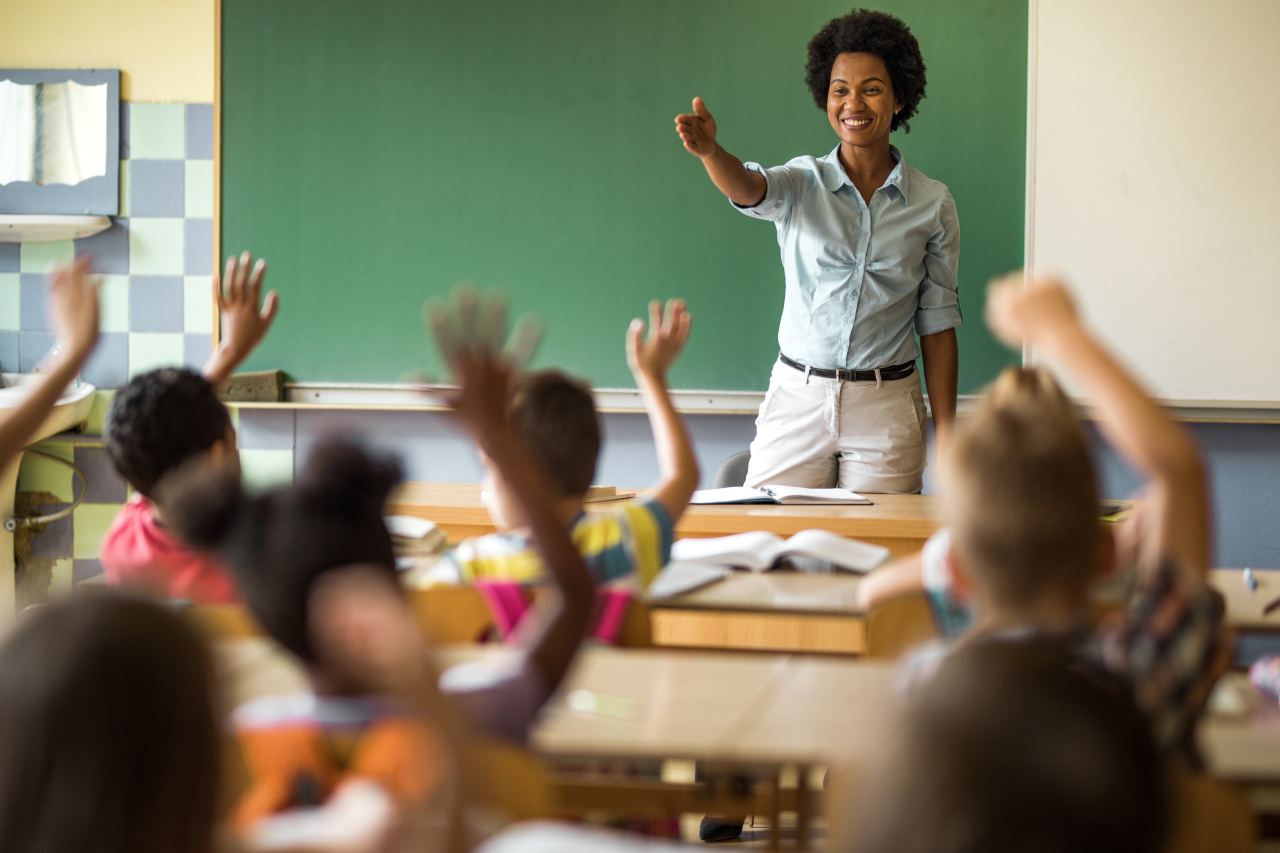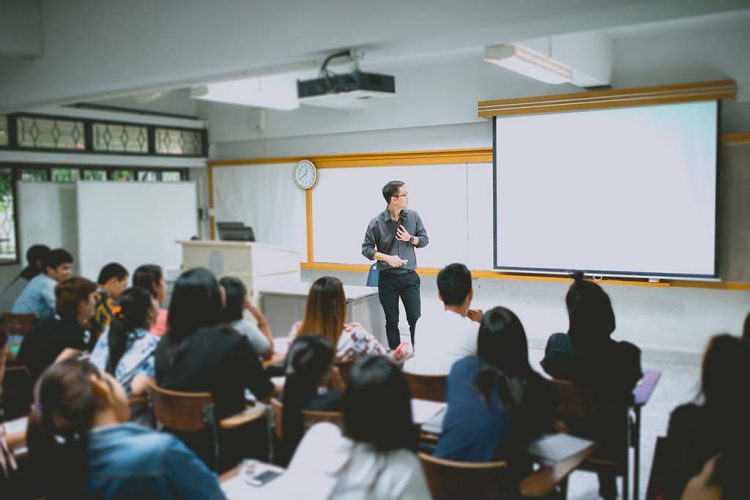Primary Science Tuition Singapore for Building Confidence in Science
Primary Science Tuition Singapore for Building Confidence in Science
Blog Article
Checking Out the Various Training Techniques in Primary Science Education And Learning Today
Inquiry-based knowing, hands-on experiments, and the combination of technology are redefining just how instructors engage young minds. In addition, joint techniques and separated instruction are being employed to cater to the varied demands of trainees, enhancing both engagement and understanding.
Inquiry-Based Learning
Inquiry-Based Discovering (IBL) is a pedagogical technique that urges pupils to explore scientific ideas through wondering about, examination, and hands-on experimentation. This approach highlights the duty of students as active participants in their learning, advertising critical thinking and analytic abilities. By involving with real-world questions, students become determined and curious, which improves their understanding of scientific concepts.
In IBL, educators work as facilitators, assisting pupils as they navigate their queries as opposed to supplying information straight. This student-centered strategy enables distinction, accommodating various learning rates and designs. Trainees develop skills in formulating theories, designing experiments, and evaluating information, which are crucial for clinical literacy.
Furthermore, IBL cultivates partnership among trainees, urging them to share concepts and searchings for. This cumulative query promotes social skills and a sense of neighborhood within the classroom. The procedure of questions encourages resilience, as trainees find out to accept failure as a tipping stone toward understanding.
Hands-On Experiments
Hands-on experiments are an essential component of efficient science education and learning, matching the concepts of inquiry-based learning. These experiments enable pupils to involve directly with clinical concepts, cultivating a much deeper understanding through experiential understanding. By controling materials and observing results, young learners can understand abstract concepts in tangible methods.
Such activities promote important thinking and problem-solving skills, as trainees hypothesize outcomes, conduct experiments, and evaluate results. This procedure urges them to ask inquiries, fine-tune their understanding, and create a clinical attitude. In addition, hands-on experiments can be customized to varied understanding styles, making sure that all students have the possibility to engage meaningfully with the web content.
Furthermore, hands-on experiments often urge collaboration among peers, advertising teamwork and interaction skills. Functioning in teams makes it possible for students to share ideas, discuss findings, and gain from each other, which enhances their total instructional experience.
Incorporating hands-on experiments into the key science curriculum not just enriches the discovering environment yet also grows a lifelong passion in science. By actively taking part in their education, pupils are most likely to create a passion for scientific query that expands past the classroom.

Modern Technology Assimilation
Integrating innovation into key scientific research education has come to be increasingly essential in cultivating pupil interaction and boosting discovering end results. Using digital tools, such as interactive simulations, virtual labs, and educational software program, provides students with possibilities to check out scientific concepts in ingenious ways. These resources assist in a much deeper understanding of complicated topics by enabling students to envision and control variables that would certainly be impractical in a conventional class setup.
In addition, innovation combination encourages individualized learning experiences. Pupils can advance at their very own rate, revisiting difficult principles through multimedia sources, which satisfy different knowing designs. This flexibility not only sustains specific development however additionally grows a sense of autonomy in students.
Furthermore, modern technology works as a bridge to real-world scientific research, connecting pupils with present study and professional payments. Access to on-line databases and scientific journals broadens trainees' perspectives on clinical inquiry and cultivates vital believing skills.
Collaborative Knowing
Collaborative discovering plays a important link vital function in primary science education by promoting teamwork and interaction abilities amongst trainees. This strategy encourages learners to work together, share expertise, and involve in analytical, which enhances their understanding of clinical principles. By joining team activities, pupils find out to express their ideas, listen to varied perspectives, and work out options, every one of which are important skills in both academic and real-world contexts.

Research study indicates that collective knowing can lead to raised motivation and involvement in scientific research topics, as trainees discover pleasure in common experiences (primary science tuition Singapore). Furthermore, this method prepares pupils for future joint ventures, outfitting them with the skills required for effective teamwork in greater education and learning and expert settings. Inevitably, embracing collaborative discovering in key science education can dramatically enhance the learning experience and advertise a much deeper understanding of clinical query
Differentiated Guideline

Distinguished instruction can show up in numerous means, such as differing the web content, processes, or items of knowing. Teachers might make use of tiered tasks that give varying degrees of intricacy, permitting trainees to work at their respective preparedness levels. Additionally, flexible grouping techniques can help with collaboration among pupils with various capabilities, fostering peer discovering.
Analysis plays an important duty in this method, as it educates guideline and helps teachers understand each student's unique requirements. Formative analyses, such as monitorings and tests, can direct teachers in adjusting their strategies to boost finding out end results. primary science tuition Singapore. Ultimately, by carrying out set apart direction in primary science education and learning, teachers can grow a much more equitable and effective understanding environment, equipping all students to reach their complete potential in recognizing scientific sensations
Verdict
In recap, the varied teaching techniques in key scientific research education, consisting of inquiry-based understanding, hands-on experiments, technology combination, collective understanding, and separated guideline, jointly add to an extra effective understanding setting. These methods promote critical reasoning, problem-solving abilities, and a deeper understanding of scientific ideas. By implementing these methods, teachers can produce interesting and encouraging classrooms that attend to the different demands of Learn More Here students, inevitably promoting a long-lasting interest in science and improving scholastic accomplishment.
Inquiry-Based Understanding (IBL) is an instructional technique that urges trainees to discover scientific concepts through questioning, investigation, and hands-on testing.Collective knowing plays an essential role in Get the facts main science education by cultivating team effort and interaction abilities among pupils.Research study suggests that collective understanding can lead to increased inspiration and interaction in science subjects, as pupils discover pleasure in common experiences.In fostering an inclusive understanding atmosphere, distinguished direction arises as a vital method to fit the varied requirements and abilities of pupils in main science education. Eventually, by carrying out set apart direction in main science education, teachers can cultivate a more equitable and effective knowing setting, empowering all trainees to reach their complete potential in comprehending clinical sensations.
Report this page